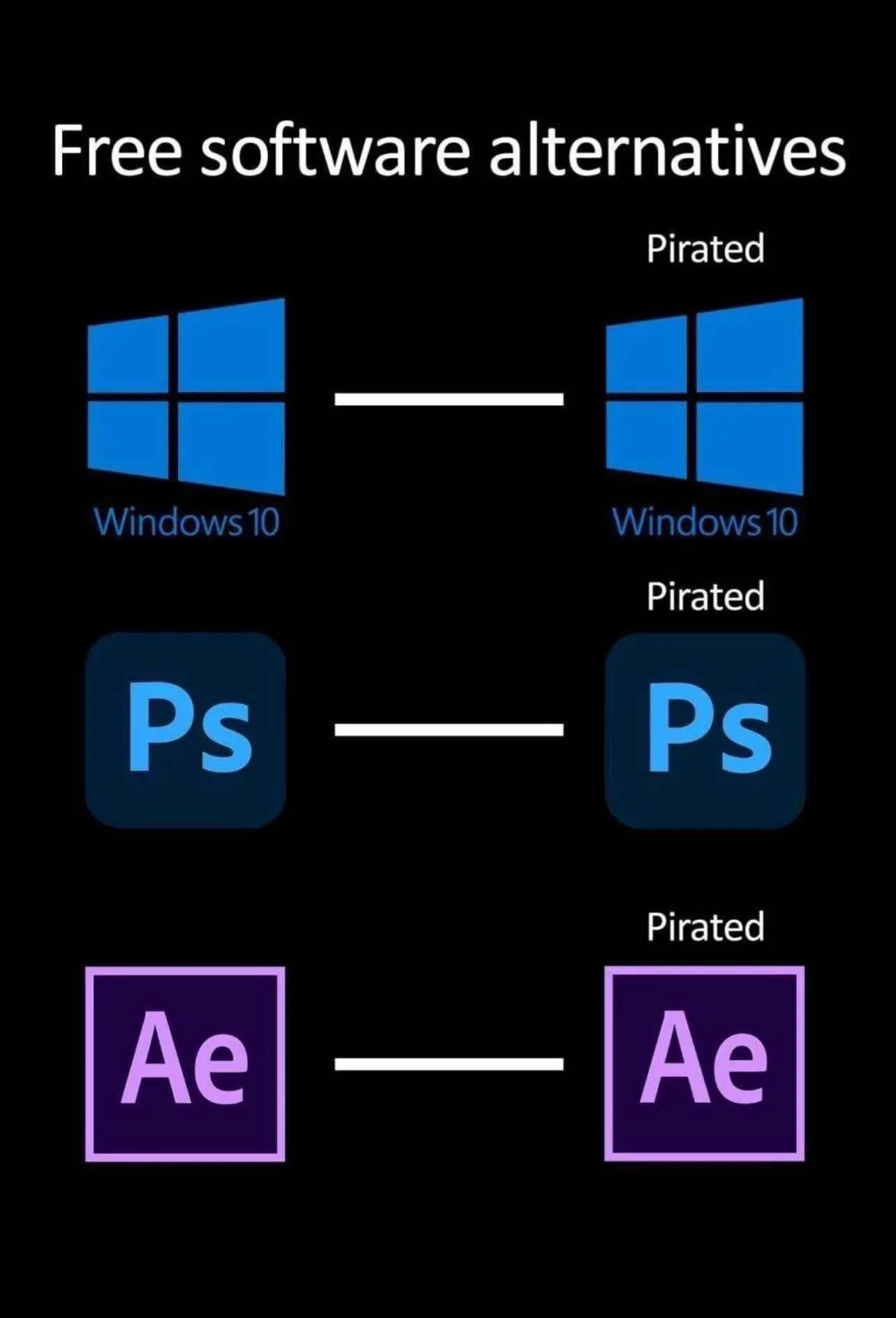I'd argue it's better to use actual alternatives. Half of the issue with free and open source software is that it's userbase is too small. If more people used it, it could actually improve in many ways.
Lets take gaming on Linux as an example. The userbase on steam is somewhere around 5%. So there is almost no incentive for developers to make games that run nativly on Linux. Its actually easier to run the games in a compatibility layer then to get a Linux port of a game. And although wine and proton work incredibly well, sometimes even running a game better than on windows; a Linux native version of every game would be ideal. Which will never happen with such a small userbase.
Next you have the terrible business practices of these companies. Even if you use the pirated versions. You are in their ecosystem and their community. You increase their profitability and their stock price simply by continuing the industry standard.
Pirated versions of software like this is excusable if you need it for work or sometihing. But imagine if instead of staying with the status quo, you use and help improve actual free and open source alternatives. Versons of software that don't steal your data or monetize how you use it by selling your input to others or stealing it for "AI" datasets.
Imagine using free and open source software that gives you feedom because your data stays on your devices, your creations belong to only yourself or who ypu choose to share it with, and you work with others to improve it; even if it's by just submitting bug reports. Imagine using something like that which you find so altruisticly beneficial that instead of pirating the software that has no respect for you, you donate money to the devs of free and open source software. Yes, I'm a pirate. But I do donate money to the right causes and something that protects my freedom is worth both my time and my money.



